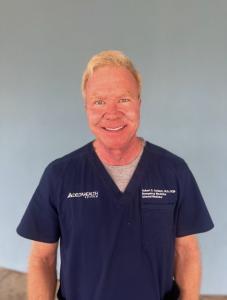Understanding the Roles: Dr. Robert Corkern Explains Emergency Medicine vs. Internal Medicine
Understanding the Roles: Dr. Robert Corkern Explains Emergency Medicine vs. Internal Medicine
Blog Article

In regards to healthcare, lots of people usually confuse emergency medicine with internal medicine. Equally are crucial limbs of medication, however they serve different functions in patient care. Dr Robert Corkern Mississippi, a renowned medical specialist, explains the main element variations between those two specialties, shedding light on their unique focuses and how each contributes to individual health. Knowledge the variation between disaster medication and inner medication can help patients better steer their healthcare needs and make knowledgeable decisions.
The Target of Emergency Medication
Crisis medication is designed to provide immediate, acute care for patients facing urgent or lethal conditions. Emergency physicians work in hospitals' disaster sections (EDs), wherever they're the first level of contact for people encountering significant incidents, shots, heart problems, and other medical emergencies. Dr. Corkern emphasizes that emergency medication is about stabilization and rapid decision-making. Crisis physicians are experienced to handle a wide range of medical problems, frequently with out reveal medical record of the in-patient, and must produce rapid judgments predicated on restricted information.
The primary aim of disaster medicine is to prevent further harm, stabilize the individual, and start the right interventions. From injury care to handling center problems or shots, emergency physicians are authorities in handling intense symptoms and providing life-saving treatments in high-pressure environments.
The Role of Inner Medicine
In contrast, internal medication centers on diagnosing and handling persistent disorders and conditions that affect adults, such as for instance diabetes, hypertension, and heart disease. Central medicine specialists, or internists, use people over a lengthy period, giving comprehensive attention and reduction strategies. Dr. Corkern explains that internal medication is mainly focused on the whole-body management of non-emergency medical issues. Internists often serve as major attention medical practioners, handling routine check-ups, managing continuing treatments, and managing care for patients with complicated, long-term health issues.
While disaster physicians handle immediate considerations, internists have a more holistic and long-term way of patient health. They usually perform closely with specialists in areas like cardiology, pulmonology, and nephrology to handle persistent conditions and make sure that patients get matched care for multiple wellness concerns.
Teaching and Method of Attention
Dr. Corkern shows the variations in working out needed for both fields. Disaster medication involves physicians to be prepared for a wide spectral range of conditions that'll need quick, life-saving interventions. Disaster health practitioners are trained to manage injury, important infection, and acute exacerbations of persistent conditions. That training involves huge focus on acute attention and advanced life-saving procedures, often in high-stress environments.
On one other give, central medication physicians undergo intensive instruction in the prevention, diagnosis, and treatment of serious conditions. They focus on giving long-term care, frequently handling a patient's medical history and matching with different specialists. The internist's method is patient-centered, with an emphasis on long-term health preservation and infection prevention.
When to Seek Emergency Medicine or Central Medicine
Knowing when to get emergency medication versus inner medicine could make most of the big difference in the rate and type of attention an individual receives. If you're experiencing a medical crisis, such as for example serious chest pain, problem breathing, or unexpected lack of consciousness, the er is the best spot to go. Nevertheless, for continuing health problems, serious infection administration, or general health maintenance, an inside medication specialist is typically the most effective position of contact.
Realization:
Both emergency medication and internal medication play important jobs in patient treatment, but their techniques, emphasis places, and training vary significantly. Dr Robert Corkern's reason gives quality on what these specialties purpose and when each is most relevant. By knowledge the distinctions, patients can greater understand their healthcare wants and assure they are seeking the best kind of care at the right time. Whether facing a crisis or controlling a chronic issue, both specialists are essential in maintaining and increasing health.
Report this page